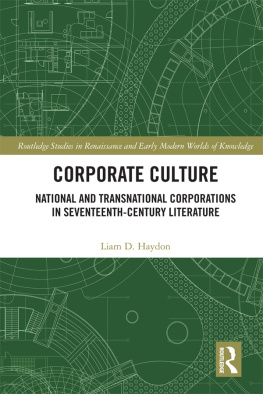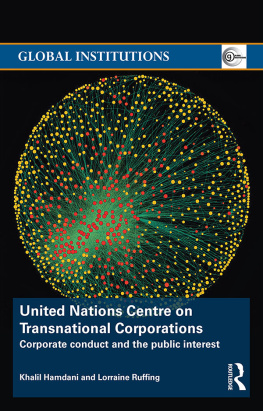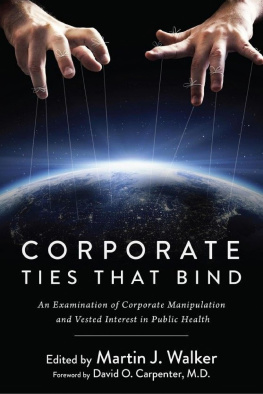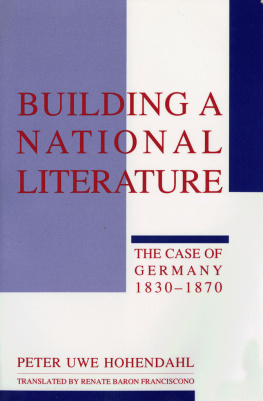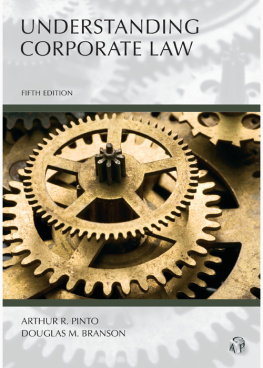Corporate Culture
The corporation an immortal collective bound to act for the common good was developed in the seventeenth century, but comparatively little attention has been paid to its literary ramifications. This work combines corporate history with literary analysis to demonstrate how corporations, and the literature they engendered, shaped ideas of the public sphere, trust, the morality of trade and exchange, national identity and salvation.
Drawing on a wide range of genres including corporate publications, letters and minute books; dramatic works; epic poetry and sermons this study shows how widely corporate rhetoric spread, and how embedded it was in the early modern social imagination.
Liam D. Haydon is a postdoctoral fellow in the Centre for the Political Economies of International Commerce at the University of Kent.
Routledge Studies in Renaissance and Early Modern Worlds of Knowledge
Series Editor: Harald E. Braun
This series explores Renaissance and Early Modern worlds of knowledge (c.1400c.1700) in Europe, the Americas, Asia and Africa. The volumes published in this series study the individuals, communities and networks involved in making and communicating knowledge during the first age of globalisation. Authors investigate the perceptions, practices and modes of behaviour which shaped Renaissance and Early Modern intellectual endeavours and examine the ways in which they reverberated in the political, cultural, social and economic spheres.
The series is interdisciplinary, comparative and global in its outlook. We welcome submissions from new as well as existing fields of Renaissance Studies, including the history of literature (including neo-Latin, European and non-European languages), science and medicine, religion, architecture, environmental and economic history, the history of the book, art history, intellectual history and the history of music. We are particularly interested in proposals that straddle disciplines and are innovative in terms of approach and methodology.
The series includes monographs, shorter works and edited collections of essays. The Society for Renaissance Studies (www.rensoc.org.uk) provides an expert editorial board, mentoring, extensive editing and support for contributors to the series, ensuring high standards of peer-reviewed scholarship. We welcome proposals from early career researchers as well as more established colleagues.
SRS Board Members: Erik DeBom (KU Leuven, Belgium), Mordechai Feingold (California Institute of Technology, USA), Andrew Hadfield (Sussex), Peter Mack (University of Warwick, UK), Jennifer Richards (University of Newcastle, UK), Stefania Tutino (UCLA, USA), Richard Wistreich (Royal College of Music, UK)
Political Representation in the Ancien Rgime
Edited by Joaquim Albareda and Manuel Herrero Snchez
Corporate Culture
National and Transnational Corporations in Seventeenth-Century Literature
Liam D. Haydon
For a full list of titles in this series, please visit www.routledge.com
Corporate Culture
National and Transnational Corporations in Seventeenth-Century Literature
Liam D. Haydon
First published 2019
by Routledge
2 Park Square, Milton Park, Abingdon, Oxon OX14 4RN
and by Routledge
711 Third Avenue, New York, NY 10017
Routledge is an imprint of the Taylor & Francis Group, an informa business
2019 Liam D. Haydon
The right of Liam D. Haydon to be identified as author of this work has been asserted in accordance with sections 77 and 78 of the Copyright, Designs and Patents Act 1988.
All rights reserved. No part of this book may be reprinted or reproduced or utilised in any form or by any electronic, mechanical, or other means, now known or hereafter invented, including photocopying and recording, or in any information storage or retrieval system, without permission in writing from the publishers.
Trademark notice: Product or corporate names may be trademarks or registered trademarks, and are used only for identification and explanation without intent to infringe.
British Library Cataloguing-in-Publication Data
A catalogue record for this book is available from the British Library
Library of Congress Cataloging-in-Publication Data
Names: Haydon, Liam D., author.
Title: Corporate culture : national and transnational corporations in seventeenth century literature / by Liam D. Haydon.
Description: 1st Edition. | New York : Routledge, [2018] | Series: Routledge studies in renaissance and early modern worlds of knowledge ; 4 | Includes bibliographical references and index. |
Identifiers: LCCN 2018021263 (print) | LCCN 2018021813 (ebook) | ISBN 9781315531052 () | ISBN 9781138693241
Subjects: LCSH: Corporate cultureHistory17th century. | CommerceSocial aspectsHistory17th century. | Foreign exchangeHistory17th century.
Classification: LCC HD58.7 (ebook) | LCC HD58.7. H4169 2018 (print) | DDC 338.709/032dc23
LC record available at https://lccn.loc.gov/2018021263
ISBN: 978-1-138-69324-1 (hbk)
ISBN: 978-1-315-53105-2 (ebk)
Typeset in Sabon
by Apex CoVantage, LLC
For Nichi, who gives both life and sense
This research was carried out as part of the Leverhulme-funded project Global Determinants of the English Constitution, and I gratefully acknowledge their support. Parts of the initial research for the book was done in my fellowship at the Brotherton Library in Leeds, and although this wasnt quite the expected outcome of that grant, it put me on the right path, for which I am thankful.
It has been a pleasure to develop this work as part of a research team, and I owe thanks to the Principal Investigator of my project, Will Pettigrew, as well as fellow travellers Aske Brock, Misha Ewan, Peter Good, Emily Mann, Edmond Smith, Haig Smith, Tristan Stein and David Veevers. Although they were not all present for all of the book, everyone I have worked with has read some of it, and I am enormously grateful for their time, the thoroughness of their reading and their helpful suggestions. In particular, Id like to thank Aske and Edmond for their generosity in sharing archival finds; some of those made it in to the book, others did an excellent job of cheering me up during the writing. My colleagues at Kent, in particular my fellow early modernists Amy Blakeway and Stuart Palmer, provided encouragement, plenty of good cheer, and coffee.
This book is not my thesis, but I nonetheless owe thanks to my supervisor, Jerome de Groot, who has continued to support my work, as have, in various and generous ways, Hilary Hinds, Liz Oakley-Brown, Jennifer Richards and Rachel Willie.
Additional thanks are due to Joe Sterrett and Julia Lupton, organisers and hosts of the Trust and Risk workshop at the University of California, Irvine. This was an especially stimulating conference as I finished the book, and I thank the participants for their perceptive questions and their encouraging response; in particular, Id like to thank Alison Findlay for her support and company in California.
The staff of the British Library, the Brotherton at Leeds, the Goldsmiths archive, Nottinghamshire Record Office, the TNA, the LMA and the Huntington were all enormously helpful in their own ways, whether pointing me to useful material, answering queries or simply making archive visits more pleasurable.

